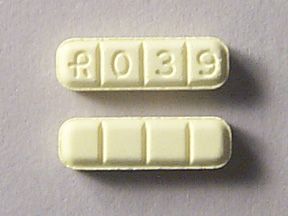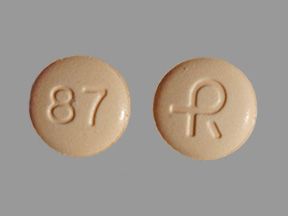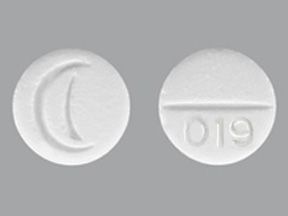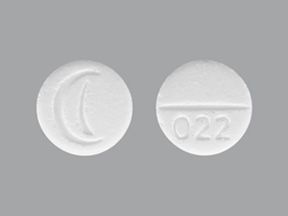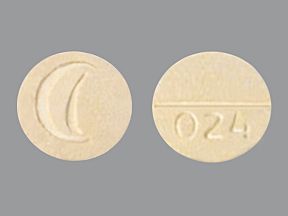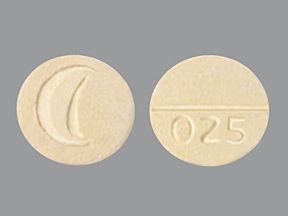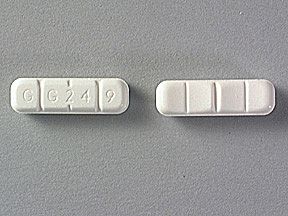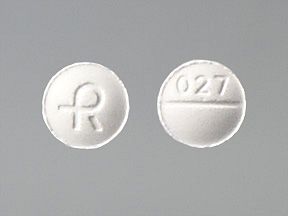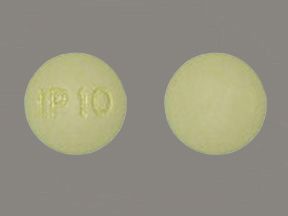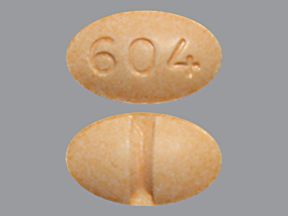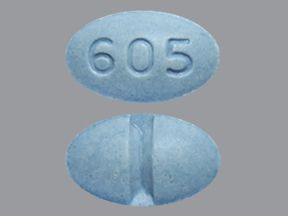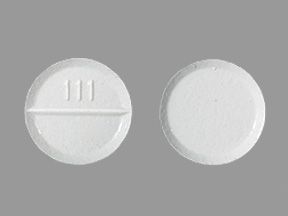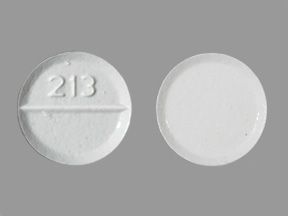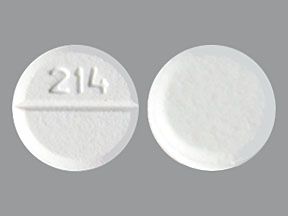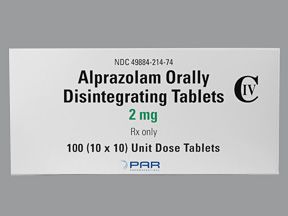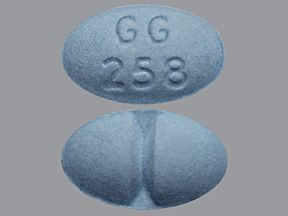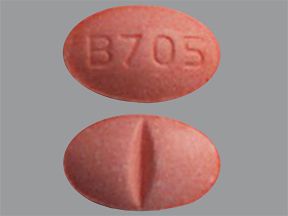Alprazolam is a generic prescription medication approved for the following uses in adults:
- treating panic disorder with or without agoraphobia (fear of being in places where it may be hard to leave or get help)
- short-term treatment of generalized anxiety disorder
For more information, see the “Alprazolam uses” section below.
Drug details
Alprazolam belongs to a class of drugs called benzodiazepines.
Alprazolam comes as an immediate-release oral tablet in four strengths: 0.25 milligrams (mg), 0.5 mg, 1 mg, and 2 mg. “Immediate release” means that the drug is released into your system shortly after taking the dose.
Alprazolam also comes as an orally disintegrating tablet, oral solution, and extended-release oral tablet. However, this article does not cover those forms. To learn more, talk with your doctor.
Brand-name version
The brand-name version of alprazolam IR oral tablets is called Xanax. To learn how the drugs compare, see this article.
Alprazolam is a generic drug. A generic drug is an exact copy of the active drug in a brand-name medication. Xanax is the brand-name medication that alprazolam is based on. A generic is considered to be as safe and effective as the original drug. Generics tend to cost less than brand-name drugs.
If you’re interested in taking Xanax instead of alprazolam, talk with your doctor. They can tell you whether Xanax comes in forms and strengths that can be prescribed for your condition. If you have insurance, you’ll also need to check whether your plan will cover Xanax.
To learn more about how generics compare with brand-name drugs, see this article.
The alprazolam dosage your doctor prescribes will depend on several factors. These include:
- the type and severity of the condition you’re taking alprazolam to treat
- your age
- other medical conditions you may have
- other medications you take
Typically, your doctor will start you on a low dosage. Then they’ll adjust it over time to reach the amount that’s right for you. Your doctor will ultimately prescribe the smallest dosage that provides the desired effect.
The following information describes dosages that are commonly used or recommended. However, be sure to take the dosage your doctor prescribes for you. Your doctor will determine the best dosage to fit your needs.
Dosage for panic disorder
Here’s alprazolam dosage information for panic disorder.
| Alprazolam for panic disorder | |
| Form | immediate-release* oral tablet |
| Strengths | • 0.25 milligrams (mg) • 0.5 mg • 1 mg • 2 mg |
| Starting dose | 0.5 mg |
| How often | three times per day |
* “Immediate release” means that the drug is released into your system shortly after taking the dose.
The maximum dosage for panic disorder is 10 mg per day, divided into three doses.
Dosage for generalized anxiety disorder
Here’s alprazolam dosage information for short-term treatment of generalized anxiety disorder (GAD). “Short-term treatment” can mean different lengths of time for different people. For more information, see “Will I need to take this drug long term?” below.
| Alprazolam for GAD | |
| Form | immediate-release* oral tablet |
| Strengths | • 0.25 mg • 0.5 mg • 1 mg • 2 mg |
| Starting dose | 0.25 mg to 0.5 mg |
| How often | three times per day |
* “Immediate release” means that the drug is released into your system shortly after taking the dose.
The maximum dosage for short-term treatment of GAD is 4 mg per day, divided into three doses.
What if I miss a dose?
If you miss a dose, take it as soon as you remember. However, if it’s nearly time for your next dose, skip the missed dose and take your next dose as scheduled. If you have questions about whether or not to take a missed dose, ask your doctor or pharmacist.
Keep in mind that you should not take two doses together to make up for a missed dose. And you should not take extra doses to make up for missed doses. This could cause serious side effects. (For details, see the “Alprazolam side effects” section below.)
To help make sure that you don’t miss a dose, try using a medication reminder. This can include setting an alarm or using a timer. You could also download a reminder app on your phone.
Will I need to take this drug long term?
Alprazolam is not meant to be taken as a long-term treatment. Your doctor will typically prescribe it for as short a time as possible. However, “short-term treatment” can mean different lengths of time for different people. Ultimately, your doctor will work with you to prescribe alprazolam for the shortest time needed to treat your symptoms.
Alprazolam can cause mild or serious side effects. The following lists contain some of the key side effects that may occur while taking alprazolam. These lists do not include all possible side effects.
For more information about the possible side effects of alprazolam, talk with your doctor or pharmacist. They can give you tips on how to manage any side effects that may be concerning or bothersome.
Note: The Food and Drug Administration (FDA) tracks side effects of drugs it has approved. If you would like to notify the FDA about a side effect you’ve had with alprazolam, you can do so through MedWatch.
Mild side effects
Below is a partial list of mild side effects of alprazolam. To learn about other mild side effects, talk with your doctor or pharmacist, or view alprazolam’s prescribing information.
Mild side effects of alprazolam can include:
- drowsiness
- feeling dizzy or lightheaded
- muscle weakness
- trouble with coordination or balance
- slowed reaction times
- trouble speaking clearly
- trouble concentrating or memory problems
- appetite changes
- irritability
- constipation
- dry mouth
- low blood pressure
- nausea
- weight gain or loss
- change in sex drive
- mild allergic reaction*
Most of these side effects may go away within a few days to a couple of weeks. However, if they become more severe or don’t go away, talk with your doctor or pharmacist.
* For more information about allergic reaction and alprazolam, see “Allergic reaction” below.
Serious side effects
Serious side effects from alprazolam aren’t common, but they can occur. Call your doctor right away if you have serious side effects. Call 911 or your local emergency number if your symptoms feel life threatening or if you think you’re having a medical emergency.
Serious side effects can include:
- reduced ability to safely perform activities that require alertness and coordination, such as driving
- seizures
- hallucinations (seeing or hearing things that aren’t real)
- liver problems
- risks of dependence and withdrawal *†
- risks of misuse and addiction*‡
- risk of severe harm or death if taken with opioids*‡
- severe allergic reaction¶
* Alprazolam has a
† To learn more, see the “Alprazolam dependence and withdrawal” section below.
‡ For more information, see the “Alprazolam precautions” section below.
¶ For details about allergic reaction and alprazolam, see “Allergic reaction” below.
Side effects in older adults
Older adults (ages 65 years and over) have an increased risk of side effects with alprazolam when compared with younger adults.
In particular, older adults are more likely to have problems with concentration and memory while taking this drug. They’re also more likely to experience drowsiness and slowed reaction times, and have trouble with coordination or balance. These problems can increase the risk of falls.
If you’re age 65 years or older, your doctor will likely prescribe a dosage of alprazolam that’s lower than usual. This should help minimize your risk of side effects. If you have any questions, ask your doctor.
ALLERGIC REACTIONAs with most drugs, some people can have an allergic reaction after taking alprazolam. This was a rare side effect in clinical trials of this drug.
Symptoms of a mild allergic reaction can include:
A more severe allergic reaction is rare but possible. Symptoms of a severe allergic reaction can include:
- swelling under your skin, typically in your eyelids, lips, hands, or feet
- swelling of your tongue, mouth, or throat
- trouble breathing
Call your doctor right away if you have an allergic reaction to alprazolam, as the reaction could become severe. Call 911 or your local emergency number if your symptoms feel life threatening or if you think you’re having a medical emergency.
The Food and Drug Administration (FDA) approves prescription drugs such as alprazolam to treat certain conditions. Alprazolam may also be used off-label for other conditions. Off-label drug use is when an FDA-approved drug is prescribed for a purpose other than what it’s approved for.
Alprazolam for panic disorder
Alprazolam immediate-release oral tablets are FDA-approved to treat panic disorder with or without agoraphobia in adults. “Immediate release” means that the drug is released into your system shortly after taking the dose.
Panic disorder explained
Panic disorder is a mental health condition that causes repeated, unexpected panic attacks. A panic attack is a sudden, intense feeling of anxiety and fear that causes physical symptoms.
Symptoms of a panic attack can include:
- nausea
- dizziness
- shaking
- feeling hot
- shivering
- chest pain
- fast or pounding heartbeat
- fast breathing
- choking sensations
- tingling or numbness
- feeling detached from reality
- fear of passing out or dying
With panic disorder, you have ongoing anxiety about having another panic attack. And you may avoid certain situations in case you have a panic attack. This can lead to agoraphobia, which is a fear of being in a situation where it would be difficult to leave or get help.
Panic disorder can significantly affect your daily life, relationships, and ability to work.
Alprazolam is a benzodiazepine medication that has a calming and relaxing effect. It’s meant to help lessen the severity and number of panic attacks.
You can learn more about your condition in our anxiety hub.
Alprazolam for generalized anxiety disorder
Alprazolam is FDA-approved for short-term treatment of generalized anxiety disorder (GAD) in adults.
“Short-term treatment” can mean different lengths of time for different people. Ultimately, your doctor will work with you to prescribe alprazolam for the shortest time needed to treat your symptoms.
Generalized anxiety disorder explained
GAD is a mental health condition that causes anxiety as well as worries that are ongoing and out of proportion. Doctors diagnose GAD if you’ve had symptoms on most days for at least 6 months.
Symptoms of GAD can include:
- excessive, uncontrollable, ongoing worries or fears
- intrusive thoughts
- trouble concentrating
- trouble sleeping
- restlessness
- irritability
- tense muscles
- feeling of a knot in your stomach
- nausea
- diarrhea
- heart palpitations
- fatigue
GAD can have significant effects on your daily life, relationships, and ability to work.
Alprazolam is a benzodiazepine medication that has a calming and relaxing effect. It helps ease anxiety and its symptoms.
For more information about your condition, visit our anxiety hub.
Alprazolam and children
Alprazolam is not FDA-approved for any uses in children younger than age 18 years.
Here are answers to some frequently asked questions about alprazolam.
Is alprazolam approved to treat other conditions, such as sleep problems or seizures?
No. The Food and Drug Administration (FDA) has approved alprazolam to treat only panic disorder and anxiety in some situations.
However, doctors might sometimes prescribe alprazolam off-label* for sleep problems, especially if these are related to anxiety. The medication can help you fall asleep if you take a dose just before going to bed. However, doctors prescribe alprazolam only in certain circumstances. This is because your sleep problems may return when you stop taking the drug.
In addition, alprazolam carries a high risk of serious side effects, including misuse and dependence.† Due to these risks, doctors will typically recommend other treatments for sleep problems instead.
Alprazolam, which is a benzodiazepine drug, is not approved to treat seizures. Other benzodiazepines, such as clonazepam (Klonopin) and diazepam (Valium), are approved to treat seizures.
If you’re interested in treatment for sleep problems or seizures, ask your doctor what they recommend.
* Off-label drug use is when an FDA-approved drug is prescribed for a purpose other than what it’s approved for.
† Alprazolam has
What’s the half-life of alprazolam?
Alprazolam has a half-life of about 11 hours. A drug’s half-life is the length of time it takes for half a dose of the drug to be removed from your body.
It typically takes about four to five half-lives for a drug to be fully removed from your system. This means that after you stop taking alprazolam, it may take 2 to 3 days before the medication is fully cleared from your body. The exact time it takes will depend on various personal factors. These include your liver and kidney function, your age, and other medications you take.
To find out more about the half-life of alprazolam, talk with your doctor or pharmacist.
How does alprazolam compare with other anxiety drugs, such as Ativan and bromazepam?
Alprazolam, lorazepam (Ativan), and bromazepam are all benzodiazepine drugs prescribed for anxiety. (Bromazepam is not available in the United States.)
All benzodiazepines slow down activity in your central nervous system (brain and spinal cord). These drugs have calming and muscle-relaxing effects. Benzodiazepines also cause similar side effects. However, the medications have differences in terms of how long they take to work, how long they work for, and what they’re used for.
Alprazolam and lorazepam are both short-acting benzodiazepines. They start working quickly, and their effects last for about the same length of time.
Bromazepam is intermediate-acting, while some other benzodiazepines are longer-acting.* Examples include clonazepam (Klonopin) and diazepam (Valium). Along with treating anxiety disorders, these longer-acting drugs have other uses. For example, clonazepam is taken to help prevent seizures, and diazepam is taken as a muscle relaxant.
In addition, compared with longer-acting benzodiazepines, shorter-acting types have a higher risk of causing withdrawal symptoms when treatment is stopped. To read more about this, see the “Alprazolam dependence and withdrawal” section below.
Your doctor can tell you more about how alprazolam compares with other anxiety drugs.
* Intermediate-acting and long-acting benzodiazepines remain working in your system longer than short-acting benzodiazepines. Your doctor or pharmacist can provide more details.
Is alprazolam an antidepressant?
No, alprazolam is not an antidepressant. Instead, it belongs to a class of drugs called benzodiazepines. Medications in this class are often prescribed for anxiety, insomnia, and seizures.
Alprazolam can help ease anxiety or insomnia that’s associated with depression. The medication does not treat depression itself.
If you have depression, your doctor will likely prescribe an antidepressant drug, such as sertraline (Zoloft). However, antidepressants can take a few weeks to build up an effect. If you have anxiety or insomnia with your depression, your doctor may also prescribe alprazolam for a short time. Alprazolam helps relieve these symptoms while the antidepressant takes effect.
Your doctor can advise you on whether an antidepressant, alprazolam, or both are right for you.
You may wonder how alprazolam compares with other medications that are prescribed for similar uses. The brand-name version of alprazolam is called Xanax. To find out how alprazolam compares with Xanax, see this article.
This drug comes with several precautions. These are considered drug-condition interactions.
FDA warnings
Alprazolam has
Risks of dependence and withdrawal. To learn more, see the “Alprazolam dependence and withdrawal” section below.
Risks of misuse and addiction. Alprazolam is a benzodiazepine drug that’s a controlled substance. A controlled substance has an approved medical use as well as a risk of misuse and addiction. With misuse, a drug is taken in a way or for a use not prescribed by a doctor, typically to produce pleasurable effects. Drug misuse can lead to addiction. With addiction, you feel unable to stop taking a drug, even if it causes harm.
Alprazolam misuse and addiction can cause serious side effects, including seizures, breathing problems, paranoia, and suicidal thoughts or actions. Overdose and, in rare cases, death can also occur. These are more likely if alprazolam is taken with alcohol, opioids, or other drugs. (For details, see the “Alprazolam overdose” and “Alprazolam and alcohol” sections below. To learn more about opioids, see “Risk of severe harm or death if taken with opioids” right below.)
You may have a higher risk of alprazolam misuse and addiction if you’ve experienced alcohol or drug misuse or addiction in the past. Your doctor will assess your risk of misuse and addiction before prescribing alprazolam.
It’s important to take alprazolam only as your doctor prescribes. You should not increase your dose or take the medication more often than prescribed unless your doctor has approved doing so.
If you have any symptoms of alprazolam misuse or addiction, talk with your doctor. These symptoms may include:
- taking alprazolam in higher doses or more often than prescribed
- craving the drug
- spending a lot of time trying to obtain alprazolam
- having trouble with work, relationships, or health due to taking alprazolam
Your doctor can help answer any questions you have.
Risk of severe harm or death if taken with opioids. An opioid is a powerful pain-relieving drug. Taking alprazolam with an opioid can cause serious side effects. These may include extreme sleepiness, breathing problems, coma, and in rare cases, death.
Due to these risks, you should not take alprazolam with an opioid unless this is recommended by your doctor. Alprazolam is typically prescribed with an opioid only if there are no suitable alternatives.
Examples of opioids include:
Certain drugs used to treat opioid use disorder, such as methadone (Methadose), are also opioids.
If your doctor recommends taking alprazolam with an opioid, they’ll prescribe the lowest possible dose of both drugs for the shortest possible time. They’ll also likely prescribe naloxone (Narcan) to keep on hand. Narcan is a nasal spray that can be used in an emergency to block the effects of opioids.
If you’re prescribed alprazolam with an opioid, it’s helpful to tell people you live with and people you’re close to. They should administer Narcan and call 911 (or the local emergency number) right away if you become extremely sleepy or don’t respond to physical or verbal stimulation. They should also call if you have slow, shallow breathing or your breathing stops.
Taking alprazolam with an opioid could affect your ability to safely perform activities that require alertness and coordination, such as driving. If your doctor prescribes alprazolam and an opioid, you should not drive until you know how the combination affects you and that it’s safe to drive.
Other precautions
In addition to the boxed warnings mentioned above, alprazolam has other warnings.
If any of the following medical conditions or other health factors pertain to you, be sure to talk with your doctor before taking alprazolam.
- if you’re pregnant or thinking about becoming pregnant
- if you’re breastfeeding or thinking about breastfeeding
- if you’ve ever had an allergic reaction to alprazolam, any of its ingredients, or other benzodiazepine drugs
- if you have liver or kidney problems
- if you have a history of depression, mania, or bipolar disorder
- if you have a history of alcohol misuse, drug misuse, or drug dependence
- if you have lung or breathing problems, such as chronic obstructive pulmonary disease (COPD) or sleep apnea
- if you’re age 65 years or older
Note: For more information about the potential negative effects of alprazolam, see the “Alprazolam side effects” section above.
Suicide prevention
If you know someone at immediate risk of self-harm, suicide, or hurting another person:
- Ask the tough question: “Are you considering suicide?”
- Listen to the person without judgment.
- Call 911 or the local emergency number, or text TALK to 741741 to communicate with a trained crisis counselor.
- Stay with the person until professional help arrives.
- Try to remove any weapons, medications, or other potentially harmful objects.
If you or someone you know is having thoughts of suicide, a prevention hotline can help. The 988 Suicide and Crisis Lifeline is available 24 hours a day at 988. During a crisis, people who are hard of hearing can use their preferred relay service or dial 711 then 988.
You should not take alprazolam with alcohol. Alprazolam and alcohol both slow activity in your central nervous system (brain and spinal cord). Taking them together can increase your risk of side effects, such as:
- drowsiness
- becoming extremely sleepy or not responding to physical or verbal stimulation
- feeling dizzy or lightheaded
- muscle weakness
- trouble with coordination or balance
- slowed reaction times
- trouble speaking clearly
- trouble concentrating
- memory problems
Taking alprazolam with alcohol can also increase your risks of alprazolam misuse,* overdose,† and, in rare cases, death. If you’re concerned about avoiding alcohol with alprazolam, talk with your doctor.
* Alprazolam has a
† For details, see the “Alprazolam overdose” section below.
Alprazolam can interact with several other medications. It can also interact with certain supplements as well as certain foods.
Different interactions can cause different effects. For instance, some interactions can interfere with how well a drug works. Other interactions can increase side effects or make them more severe. Drug-condition interactions can also cause certain effects. For information about these interactions, see the “Alprazolam precautions” section below.
Alprazolam and other medications
Before taking alprazolam, talk with your doctor and pharmacist. Tell them about all prescription, over-the-counter, and other drugs you take. Also, tell them about any vitamins, herbs, and supplements you use. Sharing this information can help you avoid potential interactions.
Below is a table of medications that can interact with alprazolam. This table does not contain all drugs that may interact with alprazolam.
| Medication type or medication name | Medication examples |
| opioids | • tramadol (Ultram, ConZip) • codeine • hydrocodone (Hysingla ER) • oxycodone (Oxycontin) • fentanyl (Fentora, Actiq, others) • methadone (Methadose) |
| seizure medications | • gabapentin (Neurontin) • topiramate (Topamax) |
| antipsychotics | • haloperidol (Haldol) • clozapine (Clozaril) • risperidone (Risperdal) |
| sleeping pills | • zolpidem (Ambien, Ambien CR) • zaleplon (Sonata) • eszopiclone (Lunesta) • daridorexant (Quviviq) |
| sedating antihistamines | • hydroxyzine (Vistaril) • promethazine • diphenhydramine (Benadryl) |
| certain antidepressants | • amitriptyline • trazodone • mirtazapine (Remeron) |
| CYP3A inhibitors* | • clarithromycin • ketoconazole • itraconazole (Sporanox, Tolsura) • cimetidine (Tagamet HB) • erythromycin (Eryc, Ery-Tab, others) • fluvoxamine (Luvox) • nefazodone • ritonavir (Norvir) |
| CYP3A inducers* | • carbamazepine (Tegretol, Carbatrol, Equetro, others) • phenytoin (Dilantin) • rifampin (Rimactane) |
| digoxin (Lanoxin) | — |
* CYP3A is an enzyme (type of protein) in your liver that helps break down certain drugs, including alprazolam. Certain other medications can affect this enzyme. CYP3A inhibitors are drugs that slow down the action of this enzyme. CYP3A inducers are drugs that speed up the action of this enzyme.
Your doctor or pharmacist can provide you with more information about the interactions between these medications and alprazolam. If you have questions about any drug interactions that may affect you, your doctor or pharmacist can address those as well.
Other interactions
Other types of interactions, such as those with herbs, supplements, and foods, may also occur with alprazolam.
| Cause of interaction | Examples |
| herbs and supplements | • St. John’s wort • cannabis |
| foods and drinks | • grapefruit and grapefruit juice |
Your doctor can provide you with details about these interactions with alprazolam. If you have questions about other herbs, supplements, or foods to avoid while taking alprazolam, talk with your doctor or pharmacist.
If you’re pregnant or breastfeeding, be sure to talk with your doctor before taking alprazolam.
Alprazolam and pregnancy
Whether alprazolam is safe to take during pregnancy may depend on the stage of pregnancy you’re at.
When alprazolam was taken during early pregnancy* in clinical trials, researchers did not find an increased risk of pregnancy loss or congenital anomalies. (These anomalies are commonly known as birth defects).
However, if alprazolam is taken during late pregnancy,† the drug may cause side effects in the baby after delivery. The baby may have problems such as:
- breathing problems
- feeding problems
- excessive sleepiness
- floppiness
- withdrawal symptoms such as restlessness, tremor, irritability, and prolonged crying
If you’re pregnant or planning to become pregnant, talk with your doctor about the possible risks and benefits of taking alprazolam.
* Early pregnancy refers to the first trimester (first 12 weeks).
† Late pregnancy refers to the third trimester (weeks 29 to delivery).
Pregnancy exposure registry
If you and your doctor decide that you should take alprazolam, you’re encouraged to sign up for the drug’s pregnancy exposure registry. This registry collects information about the health of people who take psychiatric medications during pregnancy and the health of their babies. The information can help doctors and pregnant people make informed decisions about treatments during pregnancy.
For details, you can visit the registry website or call 866-961-2388. Your doctor can also tell you more.
Alprazolam and breastfeeding
Breastfeeding is not recommended while taking alprazolam.
Alprazolam can pass into breast milk and may cause side effects in a child who’s breastfed. These side effects may include:
- excessive sleepiness
- withdrawal symptoms such as irritability, sleeping problems, and prolonged crying
If you’re breastfeeding or plan to breastfeed, talk with your doctor about other treatment options for your condition. If you and your doctor decide that you should take alprazolam, ask them about other ways to feed your child.
Alprazolam and birth control
Whether alprazolam is safe to take during pregnancy may depend on the stage of pregnancy you’re at. If you’re sexually active and you or your partner can become pregnant, talk with your doctor about your birth control needs while you’re taking alprazolam.
For more information about taking alprazolam during pregnancy, see the “Alprazolam and pregnancy” section above.
As with all medications, the cost of alprazolam can vary. The actual price you’ll pay depends on your insurance plan, your location, and the pharmacy you use.
Keep in mind that you may be able to get a 90-day supply of alprazolam. If approved by your insurance company, getting a 90-day supply of the drug could reduce your number of trips to the pharmacy and help lower the cost. If ou’re interested in this option, check with your doctor, pharmacist, or insurance company.
Before approving coverage for alprazolam, your insurance company may require you to get prior authorization. This means that your doctor and insurance company will need to communicate about your prescription before the insurance company will cover the drug. The insurance company will review the prior authorization request and decide whether the drug will be covered.
If you’re not sure whether you’ll need to get prior authorization for alprazolam, contact your insurance company.
Financial and insurance assistance
Financial assistance to help you pay for alprazolam may be available.
Medicine Assistance Tool and NeedyMeds are two websites offering resources that may help decrease the price you pay for alprazolam. They also offer tools to help you find low cost healthcare, as well as educational resources. To learn more, visit their sites.
Mail-order pharmacies
Alprazolam may be available through a mail-order pharmacy. Using this service may help lower the drug’s cost and allow you to get your medication without leaving home.
If recommended by your doctor, you may be able to receive a 90-day supply of alprazolam, so there’s less concern about running out of the medication. If you’re interested in this option, check with your doctor, pharmacist, or insurance company. Some Medicare plans may help cover the cost of mail-order medications.
If you don’t have insurance, you can ask your doctor or pharmacist about online pharmacy options.
You should take alprazolam according to the instructions your doctor gives you.
Alprazolam immediate-release (IR) oral tablets are taken by mouth.
Doctors typically prescribe alprazolam for a short time while other treatments, such as antidepressants, start to work. An example of an antidepressant is sertraline (Zoloft).
When to take
Alprazolam is typically taken three times per day, such as in the morning, after lunch, and in the evening. Try to space your doses evenly. If your anxiety makes it hard to fall asleep at night, your doctor may recommend taking your last alprazolam dose just before going to bed.
You should try to take alprazolam at the same times each day. Taking the medication around the same times helps keep a steady level of the drug in your body. This helps alprazolam work effectively.
To help make sure that you don’t miss a dose, try using a medication reminder. This can include setting an alarm or using a timer. You could also download a reminder app on your phone.
Accessible labels and containers
If your prescription label is hard to read, talk with your doctor or pharmacist. Some pharmacies offer labels that have large print, braille, or a code you scan with a smartphone to convert text to speech. If your local pharmacy doesn’t have these options, your doctor or pharmacist may be able to direct you to one that does.
If you have trouble opening medication bottles, ask your pharmacist whether they can put alprazolam in an easy-open container. They also may be able to recommend tools that can make it simpler to open lids.
Taking alprazolam with food
You can take alprazolam with or without food. It doesn’t matter when you take the medication in relation to food.
Can alprazolam be crushed, split, or chewed?
Some alprazolam IR tablets are scored. If your tablet is scored, you can split it if needed. However, alprazolam IR tablets aren’t meant to be crushed or chewed. If you have trouble swallowing the tablet, talk with your doctor or pharmacist.
Taking more than the recommended dosage of alprazolam can lead to serious side effects, and in rare cases, death. Do not take more alprazolam than your doctor prescribes. (For information on the recommended dosages of alprazolam, see the “Alprazolam dosage” section above.)
Overdose symptoms
Symptoms of an overdose can include:
- sleepiness
- confusion
- problems with coordination
- slowed reflexes
- not responding to physical or verbal stimulation.
- coma
What to do in case of overdose
If you think you’ve taken too much of this drug, call your doctor. You can also call the American Association of Poison Control Centers at 800-222-1222 or use its online tool. However, if your symptoms are severe, call 911 or your local emergency number, or go to the nearest emergency room right away.
Alprazolam has a
With dependence, you become reliant on a drug to function as you usually do, either physically or psychologically. Taking alprazolam for long periods of time or in high doses increases your risk of becoming dependent on the drug.
With psychological dependence, you feel unable to stop taking a drug. This is also called addiction. Alprazolam has a boxed warning about the risks of misuse and addiction. (For details, see the “Alprazolam precautions” section above.)
Withdrawal symptoms
With physical dependence, you may have withdrawal symptoms if you suddenly stop taking the drug. Withdrawal symptoms are side effects that can occur when you stop taking a drug that your body has become dependent on.
Suddenly stopping alprazolam treatment may cause serious and possibly life threatening withdrawal symptoms, such as seizures or suicidal thoughts. Other withdrawal symptoms may include:
- trouble concentrating
- trouble sleeping
- muscle cramps, stiffness, or twitching
- headache
- nausea and vomiting
- diarrhea
- irritability
- increased sensitivity to noise or light
- depression
- memory problems
- restlessness
- pins and needles sensations
Withdrawal symptoms may sometimes last for weeks or months. Your risk of withdrawal symptoms and the risk that they’re severe is increased in certain circumstances. These are whether you’re prescribed large doses of alprazolam or take the drug for more than 12 weeks.
Specifically, it’s been reported that people taking more than 4 milligrams (mg) per day have a higher risk of withdrawal symptoms. They also have a higher risk of severe symptoms.
Preventing withdrawal symptoms
To help avoid withdrawal symptoms, alprazolam treatment should end gradually. You should not suddenly stop taking the medication.
When you and your doctor agree that you should end your treatment, they’ll usually reduce your dosage gradually over a few weeks or months. This is called a dose taper.
If you have withdrawal symptoms during your dose taper, talk with your doctor. They may increase your dosage then reduce it more slowly. However, if you have serious withdrawal symptoms, see your doctor right away. If your symptoms feel life threatening, call 911 or your local emergency number immediately.
When you get alprazolam from the pharmacy, the pharmacist will add an expiration date to the label on the bottle. This date is typically 1 year from the date they dispensed the medication.
The expiration date helps guarantee that the medication is effective during this time. The
Storage
How long a medication remains good can depend on many factors, including how and where you store it.
You should store alprazolam tablets in a tightly sealed container at room temperature between 68°F and 77°F (20°C and 25°C). Avoid storing this medication in areas where it could get damp or wet, such as bathrooms.
Disposal
If you no longer need to take alprazolam and have leftover medication, it’s important to dispose of it safely. This helps prevent others, including children and pets, from taking the drug by accident. It also helps keep the drug from harming the environment.
This article provides several useful tips on medication disposal. You can also ask your pharmacist for information about how to dispose of your medication.
Disclaimer: Medical News Today has made every effort to make certain that all information is factually correct, comprehensive, and up to date. However, this article should not be used as a substitute for the knowledge and expertise of a licensed healthcare professional. You should always consult your doctor or another healthcare professional before taking any medication. The drug information contained herein is subject to change and is not intended to cover all possible uses, directions, precautions, warnings, drug interactions, allergic reactions, or adverse effects. The absence of warnings or other information for a given drug does not indicate that the drug or drug combination is safe, effective, or appropriate for all patients or all specific uses.

